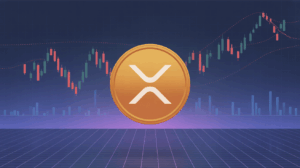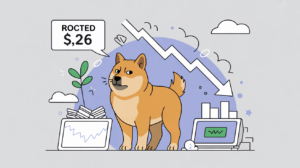Will the SEC’s In-Kind Redemption Approval Redefine Institutional Crypto Market Dynamics?
SEC Approves In-Kind Creation and Redemption for Spot Bitcoin and Ether ETFs, Marking Structural Market Shift
The U.S. Securities and Exchange Commission (SEC) has authorized in-kind creations and redemptions for spot bitcoin (BTC) and ether (ETH) exchange-traded funds (ETFs), aligning them more closely with traditional ETF mechanics and introducing greater efficiency to the market.
Under the newly approved structure, authorized participants (APs) can deliver or receive the actual underlying assets—BTC or ETH—when creating or redeeming ETF shares. This replaces the cash-based method previously mandated in the U.S., where issuers had to buy or sell crypto assets on the open market after receiving or distributing cash. The change reduces friction, cuts costs, and helps dampen price volatility associated with large-scale fund flows.
“This is a foundational improvement for institutional investors managing significant crypto allocations,” said Laurent Kssis, ETF strategist and advisor at CEC Capital. “Having implemented this in Europe, we’ve seen first-hand how in-kind mechanisms smooth trading and reduce volatility.”
Streamlined Execution and Lower Volatility
In-kind transactions eliminate the need for ETFs to execute large, time-sensitive trades, particularly during net asset value (NAV) fixing periods. The result is tighter spreads, reduced tracking errors, and less market disruption—particularly during periods of heavy inflows or redemptions.
The change could also encourage broader institutional participation by aligning U.S. ETF operations with global norms, notably those in Europe where in-kind flows are standard.
“Rather than contributing to volatility, in-kind redemptions transfer the underlying asset directly—removing the forced transaction element,” Kssis noted.
Broader Market Impact
According to the New York Digital Investment Group (NYDIG), the SEC’s shift could have wide-reaching implications for both primary and secondary markets. ETF trading is expected to become more stable, while NAV deviations and tax inefficiencies—often present in cash models—should diminish.
“With in-kind functionality, spreads tighten, create/redeem costs fall, and arbitrage becomes more efficient,” NYDIG said.
Cash-based systems have previously caused abrupt price moves around NAV calculation times due to concentrated trading activity. A 2024 study found that large-scale redemptions using cash mechanisms tended to amplify market stress.
In contrast, in-kind ETF structures facilitate more flexible, less disruptive asset transfers—helping stabilize both ETF pricing and the underlying market.
Share this content:













